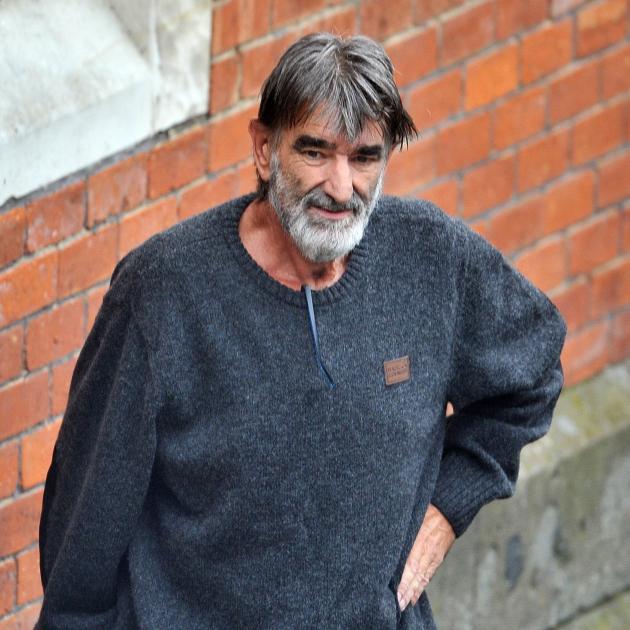Top Stories
Former Policeman Adrian Van Der Eik Sentenced for Cannabis Cultivation

Former police officer Adrian Van Der Eik, 66, was sentenced to nine months of supervision by the Dunedin District Court on March 15, 2024, after admitting to cultivating cannabis. This marks Van Der Eik’s second conviction related to drug offenses, highlighting ongoing struggles with mental health and addiction.
On February 24, police conducted a visit to Van Der Eik’s rural home in Otago, where they discovered seven semi-mature cannabis plants growing in his yard. During the court proceedings, his lawyer, Brendan Stephenson, stated that Van Der Eik suffers from chronic post-traumatic stress disorder (PTSD) stemming from his time as a police officer. The defense argued that there is a significant connection between his mental health issues and the cannabis cultivation.
Judge Maria Pecotic acknowledged the challenges faced by Van Der Eik, noting his “longstanding addiction issue” with cannabis, which he reportedly uses to self-medicate. “I understand why you’re standing here today,” she remarked. “It’s not just the nature of the work you engaged in beforehand but it seems other family members have similar issues to you.”
The judge’s remarks reflected an understanding of the complexities surrounding mental health and addiction, emphasizing the need for support rather than punishment. She urged Van Der Eik to seek help, expressing hope that he would not return to the court for similar charges in the future.
In a separate incident, Van Der Eik was scheduled for a judge-alone trial regarding a charge of speaking threateningly, but he was offered diversion instead. The diversion program allows eligible offenders to complete specific tasks to avoid a conviction.
This is not the first time Van Der Eik faced legal issues related to drugs. In 2004, he was convicted of possessing a class-C drug and a pipe, leading to a fine. His history with the police dates back to 1978 when he was employed until 1991. Van Der Eik served as a sole-charge officer in Clinton before transferring to Middlemarch in 1989. He was compelled to medically disengage from the police force in June 1991 due to severe PTSD.
Earlier this year, Van Der Eik reached out to police prosecutions, indicating his intent to defend against the charges. He described his case as fundamentally linked to his PTSD, stating in an email, “We shall expose the causation by police, gaslighting by ACC, and the Tail Management Plan between both during the late 1990s that required ACC to exit the 129 long-term injured police with expected savings of millions as we were permanently injured.” He further expressed gratitude to the police for bringing his situation to public attention, emphasizing the need for awareness around mental health issues.
As Van Der Eik navigates his sentence and seeks support, his case remains a poignant reminder of the intersection between law enforcement, mental health, and the challenges of recovery from addiction.
-

 World3 months ago
World3 months agoTest Your Knowledge: Take the Herald’s Afternoon Quiz Today
-

 Sports3 months ago
Sports3 months agoPM Faces Backlash from Fans During Netball Trophy Ceremony
-

 Lifestyle3 months ago
Lifestyle3 months agoDunedin Designers Win Top Award at Hokonui Fashion Event
-

 Sports3 months ago
Sports3 months agoLiam Lawson Launches New Era for Racing Bulls with Strong Start
-

 Lifestyle3 months ago
Lifestyle3 months agoDisney Fan Reveals Dress Code Tips for Park Visitors
-

 Health3 months ago
Health3 months agoWalking Faster Offers Major Health Benefits for Older Adults
-

 World3 months ago
World3 months agoCoalition Forms to Preserve Māori Wards in Hawke’s Bay
-

 Politics3 months ago
Politics3 months agoScots Rally with Humor and Music to Protest Trump’s Visit
-

 Top Stories3 months ago
Top Stories3 months agoUK and India Finalize Trade Deal to Boost Economic Ties
-

 Entertainment3 months ago
Entertainment3 months agoExperience the Excitement of ‘Chief of War’ in Oʻahu
-

 World3 months ago
World3 months agoHuntly Begins Water Pipe Flushing to Resolve Brown Water Issue
-

 Science3 months ago
Science3 months agoNew Interactive Map Reveals Wairarapa Valley’s Geological Secrets









